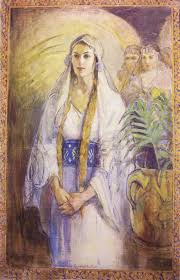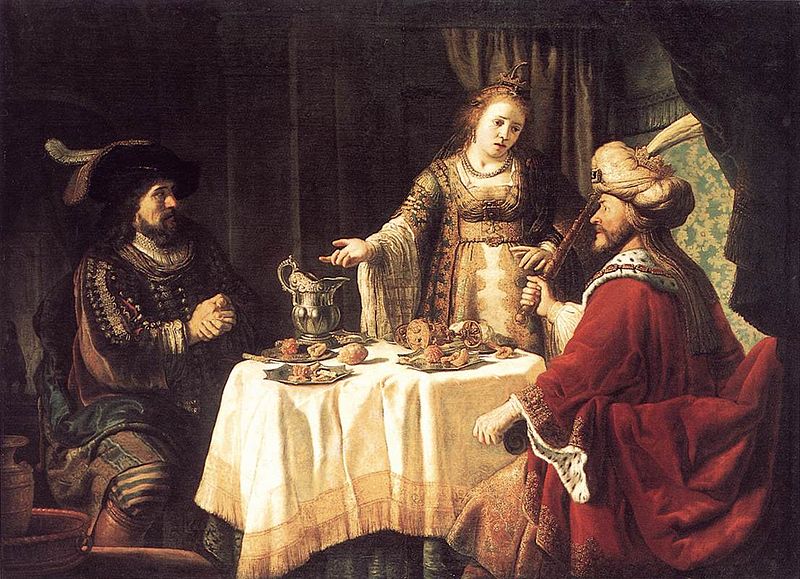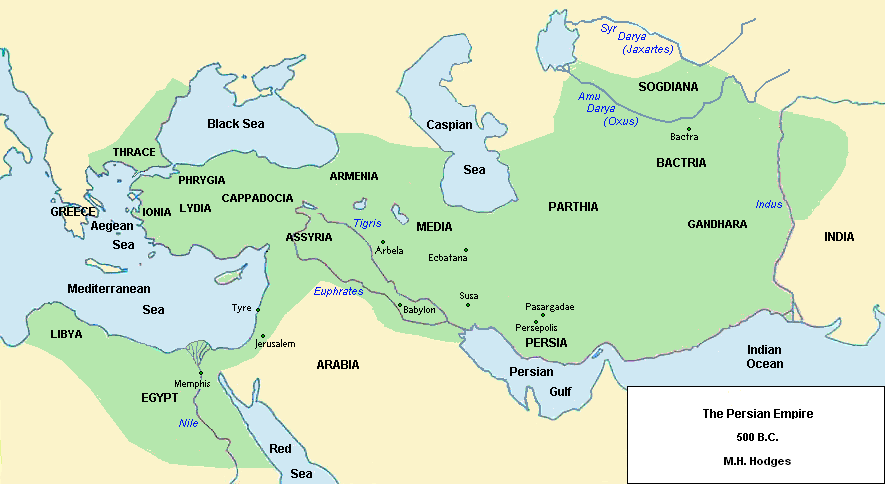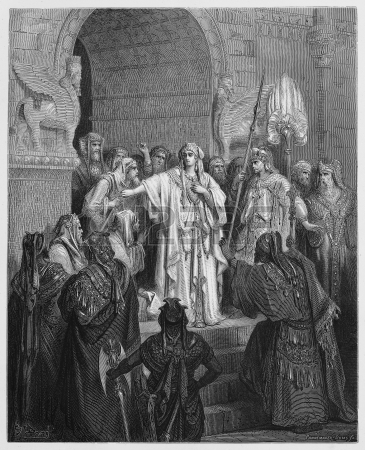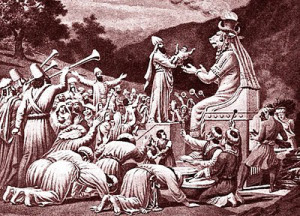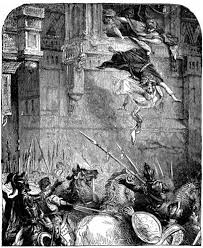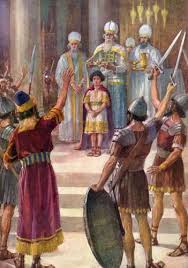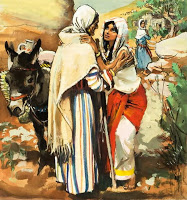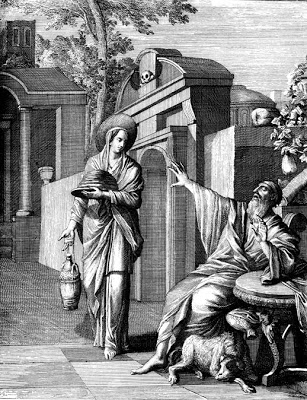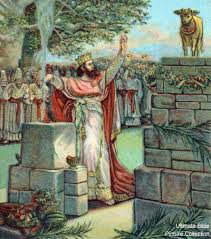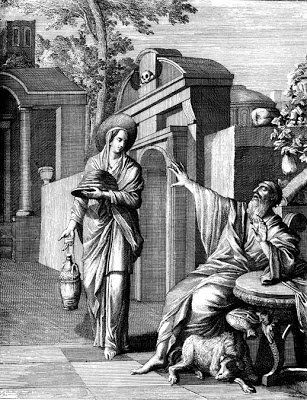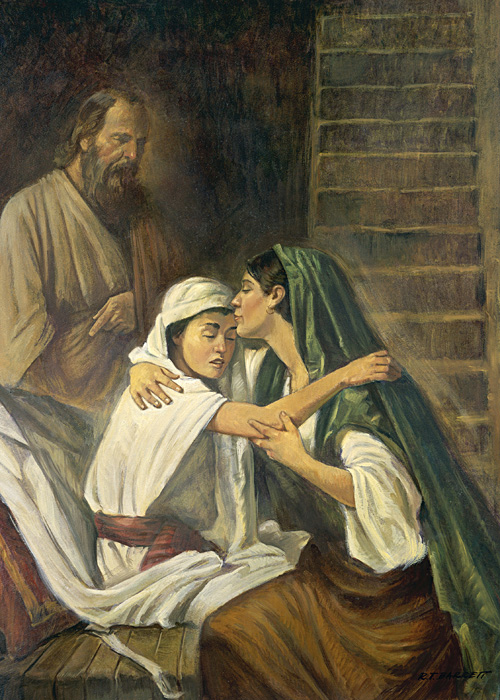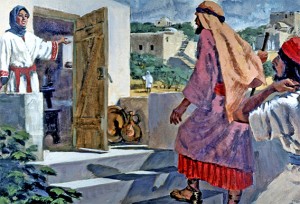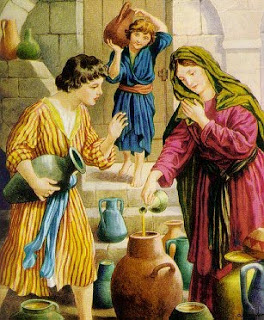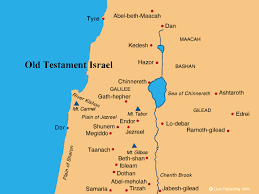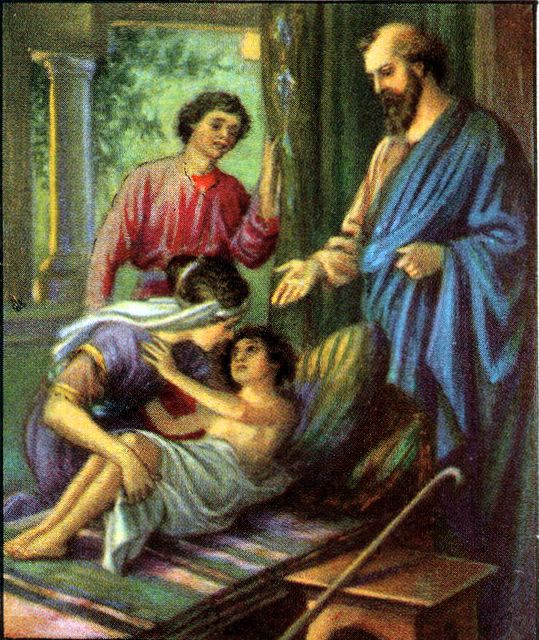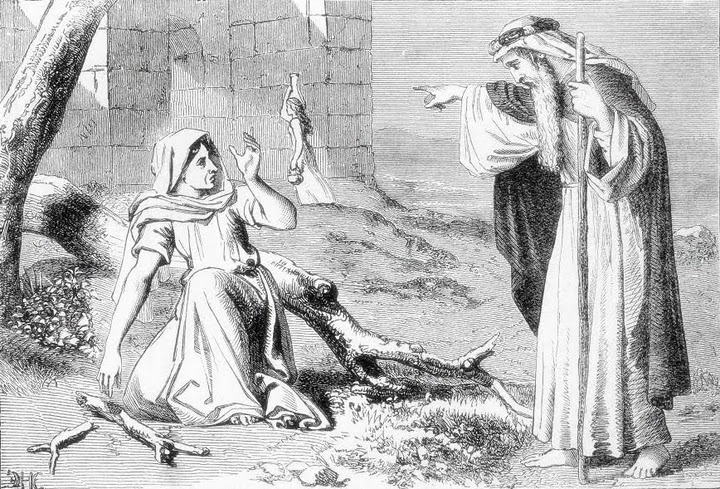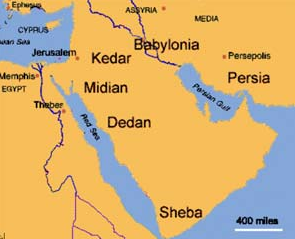When the Lord first spoke through Hosea, the Lord said to Hosea, “Go, take to yourself a wife of harlotry and have children of harlotry; for the land commits flagrant harlotry, forsaking the Lord.” So he went and took Gomer the daughter of Diblaim, and she conceived and bore him a son. (Hosea 1:2,3).
We don’t know any more details about Gomer except that she was a  prostitute, the daughter of Diblaim. The Bible is silent about how willingly she went along with Hosea. We know that she stayed with Hosea and had some children. Then she took off again into her old lifestyle. She seems just the opposite of Rahab, another famous prostitute.
prostitute, the daughter of Diblaim. The Bible is silent about how willingly she went along with Hosea. We know that she stayed with Hosea and had some children. Then she took off again into her old lifestyle. She seems just the opposite of Rahab, another famous prostitute.
Rahab remains one of the most famous women in the Bible. But Rahab’s story is quite different from Gomer’s. Matthew tells us in his Gospel that Rahab is an ancestor of the Lord Jesus Christ (Matthew 1:5). Rahab is also honored as a woman of great faith by the writer of Hebrews, “By faith Rahab the harlot did not perish along with those who were disobedient, after she had welcomed the spies in peace” (Hebrews 11:31). James the Lord’s brother tells us, “And in the same way was not Rahab the harlot also justified by works, when she received the messengers and sent them out by another way?” (James 2:25) Rahab saved the spies that Joshua sent into Jericho. This led to Israel’s victory. Because of Rahab’s faith and obedience to God, her family members were saved when the Israelites conquered Jericho. She is remembered for her faith and courageous actions.
Gomer is not remembered this way. Her only service was to marry Hosea and have children. Her part in God’s plan was to be a symbol. Hosea was to go through this strange marriage in order to give Israel a picture of its own idolatry. God’s purpose was to make the children of Israel see that they were unfaithful to Him and that punishment was on the way.
The works of the Israelites produced wicked fruit. God intended them to see this in the naming of Hosea and Gomer’s children. Gomer’s children would also be symbols.
And the Lord said to him, “Name him Jezreel; for yet a little while, and I will punish the house of Jehu for the bloodshed of Jezreel, and I will put an end to the kingdom of the house of Israel. (Hosea 1:4)
Recall that Jezreel was the place where Jehu had slaughtered all seventy of the wicked Ahab’s sons. It was the place where wicked Jezebel had died. (See post 8/5/10) God destroyed one kings’ reign after another in the Northern Kingdom of Israel. There was never one single good king in the Northern Kingdom. The king reigning in Hosea’s time was Jeroboam. His royal household would be punished too. (See post 3/7/15)
Then she conceived again and gave birth to a daughter. And the Lord said to him, “Name her Lo-ruhamah, for I will no longer have compassion on the house of Israel, that I would ever forgive them.” …. When she had weaned Lo-ruhamah, she conceived and gave birth to a son. And the Lord said, “Name him Lo-ammi, for you are not My people and I am not your God.” (Hosea 1:6, 8,9)
Gomer’s second child was a girl. Her name, Lo-ruhamah, means “not loved”. Gomer’s third child, another boy, was named Lo-ammi. Lo-ammi means “not my people”.
What a sad picture for the Israelites! If I were a true believer in God at that time, Hosea’s words and actions would be devastating. To hear God’s judgment against their nation in those terms should have caused the Israelites to repent and seek God’s forgiveness. Instead they continued in the most disgusting kind of idolatry possible.
Through Hosea, God expressed His wrath:
Say to your brothers, “Ammi,” and to your sisters, “Ruhamah.” Contend with your mother, contend, for she is not my wife, and I am not her husband; and let her put away her harlotry form her face and her adultery from between her breasts, or I will strip her naked and expose her as on the day when she was born. I will also make her like a wilderness, make her like desert land, and slay her with thirst. Also I will have no compassion on her children, because they are children of harlotry.” (Hosea 2:1-4)
We can relate to this as we are intended to relate to it. God is separating from his unfaithful wife. We know from history that the Northern Kingdom was indeed punished when the Assyrians completely overran them and caused complete devastation.
Yet God would remember His covenant. He would not completely forsake the Israelites who would repent and seek Him. In the next part of our story we see another picture of this.
Then the Lord said to me, “Go again, love a woman who is loved by her husband, yet an adulteress, even as the Lord loves the sons of Israel, though they turn to other gods and love raisin cakes.” So I bought her for myself for fifteen shekels of silver and a homer and a half of barley. Then I said to her, “You shall stay with me for many days. You shall not play the harlot, nor shall you have a man; so I will also be toward you.” (Hosea 3:1-3)
 Gomer had run away and was continuing in her harlotry. We do not know how long she was gone. God instructed Hosea to go and buy her back from the man she was living with. Apparently Gomer cannot go home with Hosea unless some remuneration is paid to the man. Hosea brought her home and renewed his marriage vows with her. This time, Hosea says, you will stay with me and stop being a prostitute. Hosea promised to love Gomer and be faithful to her. We are not told how Gomer responded.
Gomer had run away and was continuing in her harlotry. We do not know how long she was gone. God instructed Hosea to go and buy her back from the man she was living with. Apparently Gomer cannot go home with Hosea unless some remuneration is paid to the man. Hosea brought her home and renewed his marriage vows with her. This time, Hosea says, you will stay with me and stop being a prostitute. Hosea promised to love Gomer and be faithful to her. We are not told how Gomer responded.
Hosea continued to prophesy to the Israelites. He warned them of their punishment if they did not repent and return to God. On the other hand, just as Hosea was willing to take back his unfaithful wife, God would take back His people if they sought Him again.
Return, O Israel, to the LORD your God,
For you have stumbled because of your iniquity.
Take words with you and return to the LORD.
Say to Him, “Take away all iniquity,
And receive us graciously,
That we may present the fruit of our lips.”….
For in Thee the orphan finds mercy.
I will heal their apostasy,
I will love them freely,
For My anger has turned away from them.
I will be like the dew to Israel;
He will blossom like the lily,…
Whoever is wise, let him understand these things;
Whoever is discerning, let him know them,
For the ways of the LORD are right,
And the righteous will walk in them,
But transgressors will stumble in them. (Hosea 14:1-9)
What a beautiful picture of forgiveness and restoration. Some scholars think that Gomer was only a metaphor and not a real woman. I disagree. God often used detailed physical pictures to teach Israel. What about Gomer? Did she listen to her husband’s prophecy and learn from it? Did she repent and become faithful to him?
We do not know what happened to Gomer after she returned home with Hosea. Perhaps living with Hosea and seeing his faithful love to her she repented. It would be nice to think that she became a believer and finished her life as a good wife and mother.
Certainly, God gives us a picture in Gomer’s story of His faithfulness and love towards us. No matter how bad our sins are, if we truly repent God forgives us and then does even more – He heals our sins and loves us freely. He will continue to answer us and look after us. “Whoever is wise, let him (her) understand these things.”
